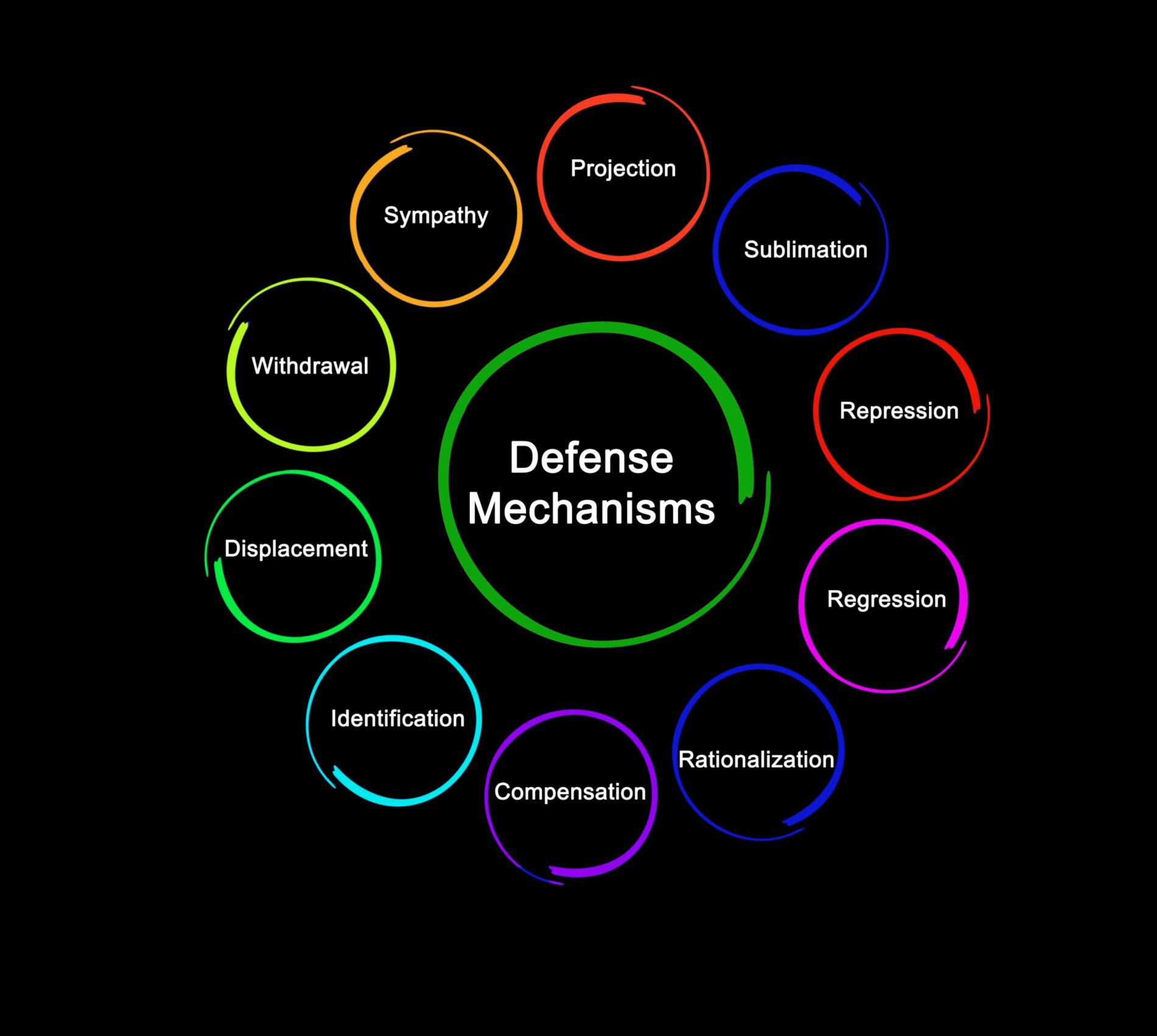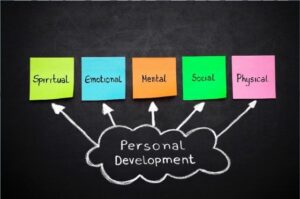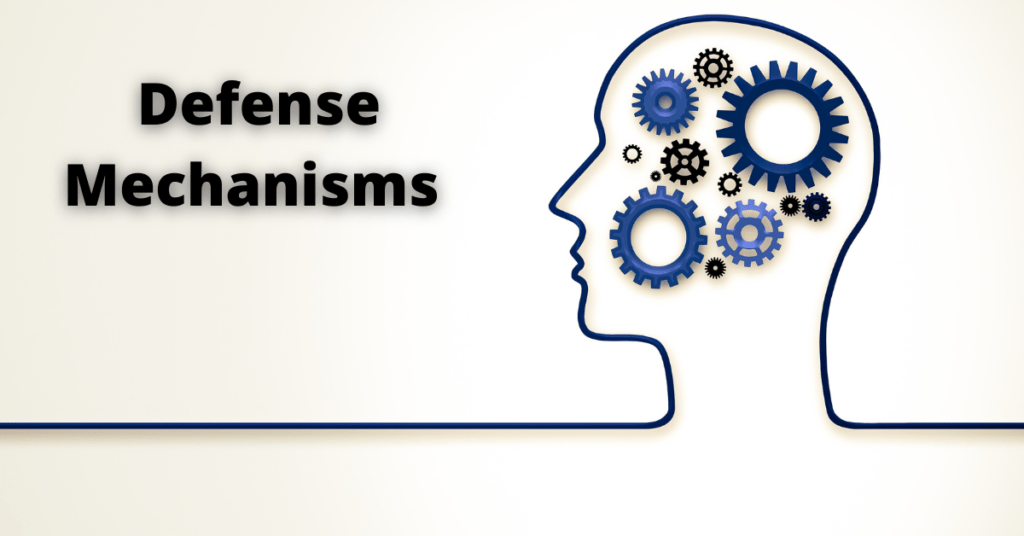Defense mechanisms can be an effective way to help people cope with anxiety, fear, and stress. A defense mechanism is a coping strategy that is used when there are feelings of anxiety or conflict. This is in order to avoid dealing with the actual issue. There are many different types of defense mechanisms. These are such as repression, denial, displacement, projection, and more. In this blog post, we’ll explore some common defense mechanisms. We will also learn how they work so you will know what your next steps should be if you feel like you need to use them.
Contents
What Are Defence Mechanisms?
 Defense mechanisms are psychological strategies that we use to protect ourselves from anxiety or emotional pain. They are unconscious processes that help us to manage difficult thoughts and feelings. These defense mechanisms are often particular ways of responding to anxiety that is used repeatedly in our lives but can cause problems. This means they are typically maladaptive in that they can prevent us from coping effectively with life’s problems.
Defense mechanisms are psychological strategies that we use to protect ourselves from anxiety or emotional pain. They are unconscious processes that help us to manage difficult thoughts and feelings. These defense mechanisms are often particular ways of responding to anxiety that is used repeatedly in our lives but can cause problems. This means they are typically maladaptive in that they can prevent us from coping effectively with life’s problems.
Types of Defense Mechanism

There are many different types of defense mechanisms but some of the most common ones include:
Denial
Denial is a type of defense mechanism where we refuse to accept the reality of a situation. It could include things like pretending that there isn’t anything wrong or telling yourself that you don’t have any problems. This is when in fact this might not be true at all.
Intellectualization
When someone intellectualizes they try and take their mind away from emotions by focusing on facts rather than feelings (e.g., thinking about how hungry they are instead). So for example, if talking about something sad then it would involve discussing details such as what time the funeral starts, but not actually feeling upset about it until later on.
Projection
Projection involves taking your own thoughts, feelings, desires, etc. and putting them onto someone else. For example, if you feel angry all the time then you might start to think that everyone else is just as angry as you are.
Repression
Repression is a type of defense mechanism where we push memories or thoughts out of our minds and forget about them. This could be helpful as it means that we don’t have to deal with the uncomfortable feelings straight away but if these memories come back later then they can cause a lot of distress.
Rationalization
Rationalization is when we try and find reasons why something isn’t actually dangerous (e.g., “I’m probably just being silly”). So for example, if we’re feeling anxious about a situation then this defense mechanism may come into play. This means that we start to think of reasons why this situation isn’t actually a big deal and that we’ll be able to cope with it.
Displacement
Displacement is a type of defense mechanism where someone redirects their feelings (anger, for example) towards someone or something else. For example, if you’re angry with your partner then you might take out your anger on someone at work instead.
Suppression
Suppression is another type of defense mechanism where we try and push our thoughts and feelings down so that we don’t have to deal with them. This usually happens automatically without us really noticing it. This can be helpful in the short term but if we don’t deal with our thoughts and feelings then they can often come back later on.
Sheltering
Sheltering is a defense mechanism where someone protects themselves from difficult emotions by staying away from anything that could cause them to feel upset. This might mean avoiding people, places, or things that are associated with negative memories. So for example, you may not want to go back to the place where your parent died because it’s too painful to think about.
Sublimation
Sublimation is a type of defense mechanism where we redirect our emotions into something more positive. So for example, someone who has a lot of energy and aggression might become a sportsperson. This way they can use their energy in a healthy way rather than letting it build up and cause problems.
Identification
Identification is when we take on the characteristics of another person as a way to feel closer to them or to make ourselves feel better. For example, you might start dressing like your favorite celebrity because you want to be like them. Or you might start copying the way they speak or behave.
Avoidance
Avoidance is a defense mechanism where we try and avoid difficult or painful situations. This might include running away from things that make us feel uncomfortable (e.g., avoiding your in-laws, not going out to certain places). Or this could mean pushing people away instead of dealing with the problem at hand (e.g., deciding to spend all your time working because you don’t really want to go home).
Reaction Formation
Reaction formation is a type of defense mechanism where we act in the complete opposite way to how we feel. So for example, if you’re feeling really angry then this might come out as being overly kind and helpful towards someone else who has made you mad (e.g., helping your partner clean up even though they were the ones that left things lying around).
Compensation
Compensation is a type of defense mechanism where you act in an over-exaggerated way (e.g., “I’m so busy all the time” or “I eat really healthily”) as a way to make up for our perceived weaknesses. This means that you might try and make up for the things that you’re not good at by doing other things really well.
Passive Aggression
Passive aggression is a type of defense mechanism where we pretend that everything’s okay but actually the opposite is true. This might include being unhelpful, not listening when someone is talking to us, or taking longer than normal to do something in order to annoy somebody else.
How To Use Defense Mechanisms?
These are some of the uses of defense mechanisms:
- You can use this type of defense mechanism when you don’t want to deal with a difficult situation. For example, if somebody asks why you’re sad and upset then you might try and change the subject or say that everything is okay even though it isn’t.
- You can also use this type of defense mechanism when you want to protect yourself from difficult emotions. For example, if you’re feeling really sad then you might avoid talking to anyone about it in case they make you feel worse.
- Defense mechanisms can also help us to fit in with a group or to act in a way that is more socially acceptable. For example, we might say that we like the same music as our friends even though we don’t really care about it just so that we fit in better.
- Lastly, defense mechanisms can be helpful when we need to put on a brave face for other people. For example, if your parent dies then you might have to act strong for your siblings and not cry in front of them because they need someone who is going to be strong for them.
Benefits of Defence Mechanisms
There are many benefits of defense mechanisms. Some of these are:
Increases Your Self-Esteem
 Defense mechanisms help increase your self-esteem when you are feeling low about yourself because of criticism or hurtful events that have happened to you. They will make it easier for you to cope with these negative feelings and emotions, which may feel overwhelming otherwise. As defense mechanisms tend not to change the root problem but cover up symptoms; they do not solve problems, only delay them. So if someone has an addiction (for example) their defense mechanism could include avoidance like stopping themselves from thinking about alcohol by focusing on other things instead (e.g., work). If this person does drink again later then the desire is still there so eventually this could lead back to the original problem.
Defense mechanisms help increase your self-esteem when you are feeling low about yourself because of criticism or hurtful events that have happened to you. They will make it easier for you to cope with these negative feelings and emotions, which may feel overwhelming otherwise. As defense mechanisms tend not to change the root problem but cover up symptoms; they do not solve problems, only delay them. So if someone has an addiction (for example) their defense mechanism could include avoidance like stopping themselves from thinking about alcohol by focusing on other things instead (e.g., work). If this person does drink again later then the desire is still there so eventually this could lead back to the original problem.
Helps To Cope With Stressful Situations
 Defense mechanisms can also be used by you when you are in stressful situations. These are such as coping with a major life event, work pressures, or even everyday problems. These are such as feeling under pressure from deadlines at work. It’s helpful because it helps you manage the stress you feel in these times of high anxiety. This is often hard for many people to cope with. This could include using denial where you may not think about issues that make you anxious. It is until they pass (e.g., ignoring an issue). Or displacement, where someone redirects their feelings (anger, for example) towards someone or something else.
Defense mechanisms can also be used by you when you are in stressful situations. These are such as coping with a major life event, work pressures, or even everyday problems. These are such as feeling under pressure from deadlines at work. It’s helpful because it helps you manage the stress you feel in these times of high anxiety. This is often hard for many people to cope with. This could include using denial where you may not think about issues that make you anxious. It is until they pass (e.g., ignoring an issue). Or displacement, where someone redirects their feelings (anger, for example) towards someone or something else.
Manages Anxiety
 Using defense mechanisms can help us reduce anxiety by helping to manage the feelings of fear and worry associated with it, so they don’t feel quite so scary. It could include things like rationalization where you try to think of reasons why this situation isn’t actually dangerous (e.g., “I’m probably just being silly”) or intellectualization which involves focusing on facts rather than your emotions when thinking about something difficult.
Using defense mechanisms can help us reduce anxiety by helping to manage the feelings of fear and worry associated with it, so they don’t feel quite so scary. It could include things like rationalization where you try to think of reasons why this situation isn’t actually dangerous (e.g., “I’m probably just being silly”) or intellectualization which involves focusing on facts rather than your emotions when thinking about something difficult.
Helps To Control Emotions
 Defense mechanisms can also help us to control our emotions. For example, repression is where you push memories or thoughts out of your mind and forget about them. This could be helpful as it means that you don’t have to deal with the uncomfortable feelings straight away. However, if these memories come back later then they can cause a lot of distress.
Defense mechanisms can also help us to control our emotions. For example, repression is where you push memories or thoughts out of your mind and forget about them. This could be helpful as it means that you don’t have to deal with the uncomfortable feelings straight away. However, if these memories come back later then they can cause a lot of distress.
Helps In Formation Of Personality
 Defense mechanisms can also help you to form your personality. This is because they allow us to develop coping strategies that we use throughout our lives. We may find that we use particular defense mechanisms more than others, and this could be something that shapes our overall character. It’s important to remember though that everyone uses defense mechanisms at some point, it’s just the way that we deal with difficult thoughts and feelings differs from person to person.
Defense mechanisms can also help you to form your personality. This is because they allow us to develop coping strategies that we use throughout our lives. We may find that we use particular defense mechanisms more than others, and this could be something that shapes our overall character. It’s important to remember though that everyone uses defense mechanisms at some point, it’s just the way that we deal with difficult thoughts and feelings differs from person to person.
Conclusion
Defense mechanisms are a way to protect oneself from being harmed by the world. It is important for us as humans to have some kind of defense mechanism in place so we do not become completely vulnerable and hopeless when faced with challenges, because then they will feel impossible to overcome. A lot of people use their defense mechanisms without even realizing it – maybe you’re guilty of this too! Going over these different types can help us be more aware of how our brain operates and what is going on around us at all times. This knowledge can be used positively or negatively depending on your perspective; either way, understanding them better should make life easier.
If you are looking for affordable Online Counseling MantraCare can help: Book a trial therapy session


